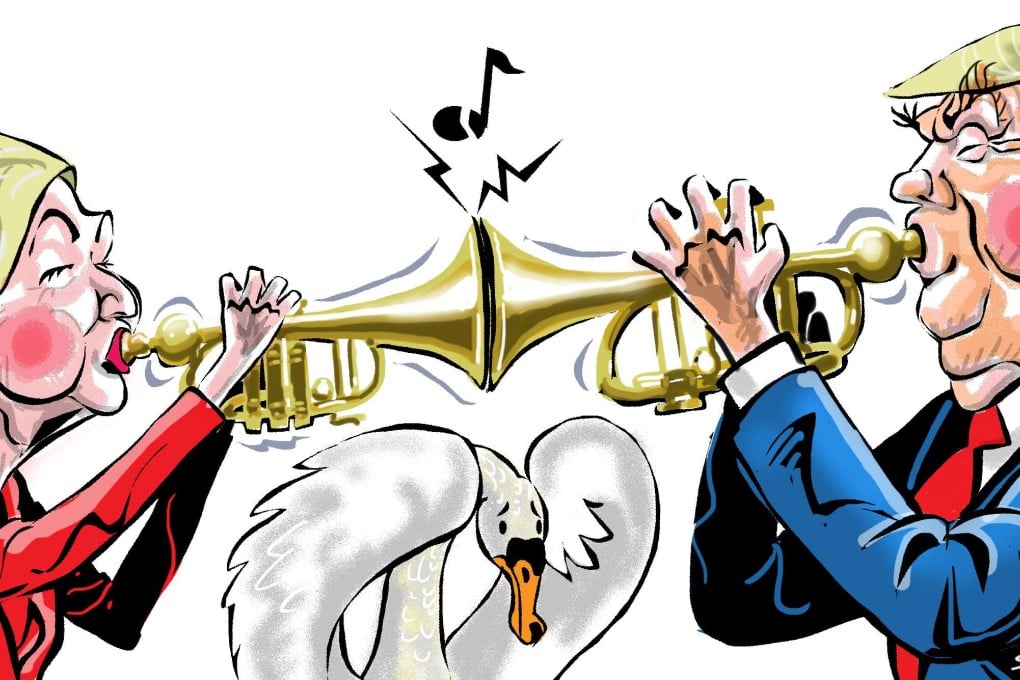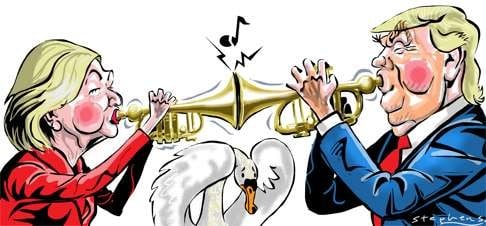Why the world needs boring but effective leaders like Hu Jintao, rather than trumpeting swans and political peacocks
Tom Plate says on a global stage full of loud-mouthed politicians, there is definitely a role for Hu’s style of supposedly staid, colourless leadership


Hu remains an enigma as he hands over power to Xi
Remember the old days? Remember Hu Jintao (胡錦濤), the predecessor to China’s current leader Xi Jinping (習近平)? The uber-quiet Hu was widely assessed as so low-key as to not even require a key chain. But maybe second thoughts are in order about this whole business of political peacocks that strut their stuff even if they don’t have any.
Let’s start with a little insight from the late, great US writer E. B. White, in his tale The Trumpet of the Swan: “‘All [trumpet] swans are vain,’ explained the cob. ‘It is right for swans to feel proud, graceful – that’s what swans are for’.”
Now apply this to the less graceful world of politics – as in: “All politicians are vain, but it is right for them to feel proud – that’s what politicians are for.” Like swans, perhaps we might say, politicians when they are in full crowing, obnoxious mode are simply being true to themselves. Expecting a political figure to be humble, as for a swan not to be vain, is to fight the nature of things.

Stephen Hawking understands mysteries of the cosmos, but can’t understand ‘demagogue’ Donald Trump’s popularity
And so this year, as almost everyone in the world knows, a bevy of American trumpeter swans have been winging their way towards the White House. Last week, one of the last still wedging forward – Hillary Clinton – did a sort of politician’s swan dive from the heights of serious public policy to honk back at Donald Trump’s many prior public insults. Originally billed as a foreign policy address, the speech was anything but. Many pro-Hillary commentators and her outright allies applauded, as in: This lady can honk with the worst of them!
There is one other calumny of consequence far worse than ‘crooked’. It is the sin of being ‘colourless’
Maybe, but as we see it: really, there’s nobody that quite trumpets like The Don. Perhaps all Clinton’s swan dive proved is that birds of a political feather do flock together: in public politics, it sometimes seems as if nothing is too vulgar. The Don has already denounced the former US secretary of state and first lady as “crooked”. What could be a worse charge than that?